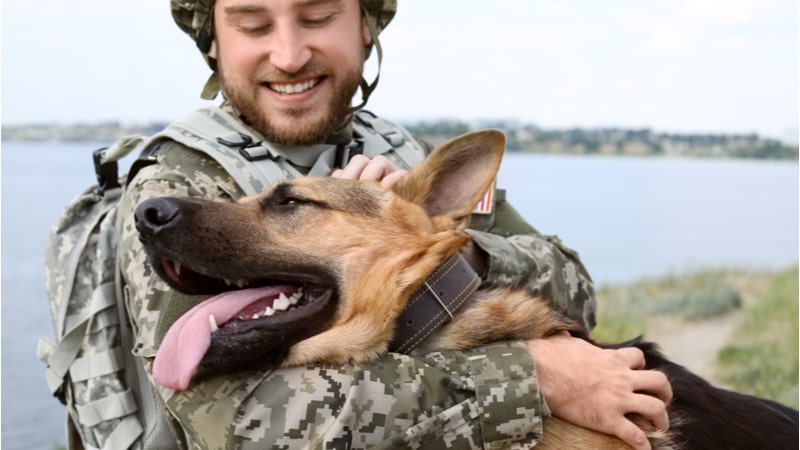
To improve the care of the Department of Defense’s (DoD) furry employees, the Defense Health Agency (DHA) is looking to modernize its current cloud-based veterinary electronic health record (VEHR) solution.
The DHA is currently using a government off-the-shelf VEHR to address the Military Health System’s (MHS) ability to optimize data capture, data management, data analysis, and event reporting for the DoD Veterinary Service. The VEHR supports Force Health Protection (FHP) for its key areas of animal care, management, and animal disease prevention and control. The existing EHR was deployed as an integrated, web-based application accessible worldwide, and that supports more than 140+ veterinary treatment facilities and 5,450 working animals.
In addition to serving as an EHR, it also functions as the practice management solution to schedule appointments, track and maintain pharmaceutical and supply inventories, collect payment for patient encounters and transactions at time and location of visit, and serve as financial management for monies collected for both working animals and privately owned animals.
As part of the sources sought post on Beta.Sam.gov, the DHA said it is looking for creative private sector solutions to its set of VEHR future-state capabilities. The future-state capabilities include:
- Integrating legacy EHR within the new solution to extract, transform, and load legacy data into the new solution, as well as validate ingestion, inclusion, and integration of all legacy data.
- Presenting value driven AI/Data Analytics information and proven practices for the VEHR primary functions, service management, and systems and network performance.
- Providing a technological approach for delivering a new VEHR Cloud Application.
- Integrating technology into DHA’s current and future platforms.
- Ensuring that cybersecurity is fully integrated and meets the Risk Management Framework guidelines for the DHA.
- Continuously delivering an Agile Sprint methodologies-based Development Life Cycle approach.
- Presenting both qualitative and quantitative Quality Assurance/Quality Control planning, methods, tools, and solutions.
- Providing suggested customer feedback methodologies to facilitate a continuous improvement program of services.
The end solution will be a Military Health System computing system with secure token authentication – either Common Access Card or soft-certification equivalent – that is client operating system platform agnostic and maintains confidentiality, data integrity, and availability. DHA also said that the solution must provide the architectures to enable functional high availability, including load balancing, clustering, and failover.
Responses are due by March 29, 2021.
